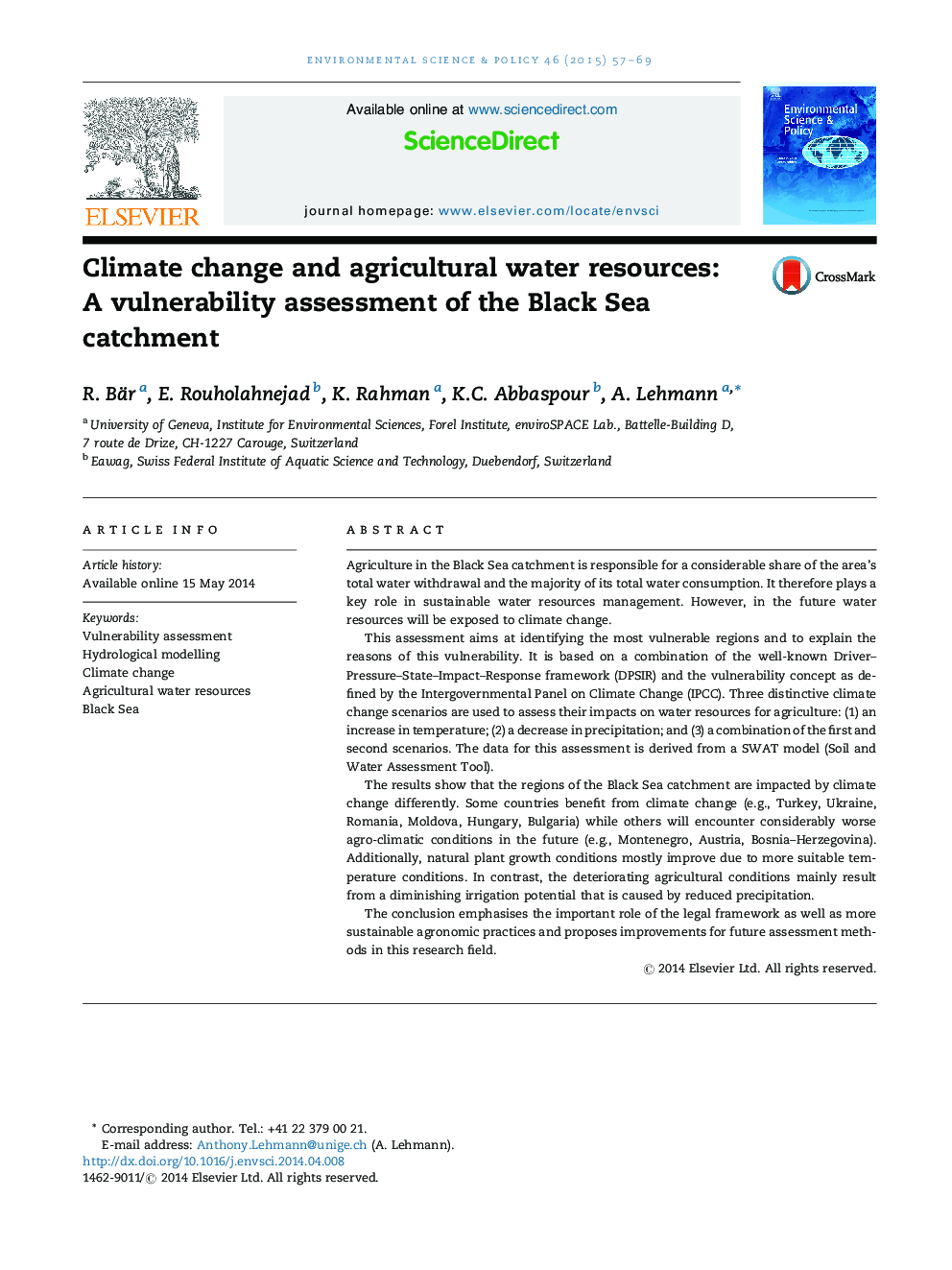| کد مقاله | کد نشریه | سال انتشار | مقاله انگلیسی | نسخه تمام متن |
|---|---|---|---|---|
| 1053507 | 1485060 | 2015 | 13 صفحه PDF | دانلود رایگان |
• Reconciling the DPSIR and vulnerability frameworks was achieved by linking the terms and concepts.
• Vulnerability assessments should orient themselves towards more dynamic models.
• Vulnerability resulted from lower river discharge conflicting between irrigation and environmental water demands.
• Some countries might benefit from climate change, while others might encounter worse agro-climatic conditions in future.
• Many policies based on DPSIR indicators (e.g. WFD) could benefit from integrating the vulnerability framework.
Agriculture in the Black Sea catchment is responsible for a considerable share of the area's total water withdrawal and the majority of its total water consumption. It therefore plays a key role in sustainable water resources management. However, in the future water resources will be exposed to climate change.This assessment aims at identifying the most vulnerable regions and to explain the reasons of this vulnerability. It is based on a combination of the well-known Driver–Pressure–State–Impact–Response framework (DPSIR) and the vulnerability concept as defined by the Intergovernmental Panel on Climate Change (IPCC). Three distinctive climate change scenarios are used to assess their impacts on water resources for agriculture: (1) an increase in temperature; (2) a decrease in precipitation; and (3) a combination of the first and second scenarios. The data for this assessment is derived from a SWAT model (Soil and Water Assessment Tool).The results show that the regions of the Black Sea catchment are impacted by climate change differently. Some countries benefit from climate change (e.g., Turkey, Ukraine, Romania, Moldova, Hungary, Bulgaria) while others will encounter considerably worse agro-climatic conditions in the future (e.g., Montenegro, Austria, Bosnia–Herzegovina). Additionally, natural plant growth conditions mostly improve due to more suitable temperature conditions. In contrast, the deteriorating agricultural conditions mainly result from a diminishing irrigation potential that is caused by reduced precipitation.The conclusion emphasises the important role of the legal framework as well as more sustainable agronomic practices and proposes improvements for future assessment methods in this research field.
Journal: Environmental Science & Policy - Volume 46, February 2015, Pages 57–69
